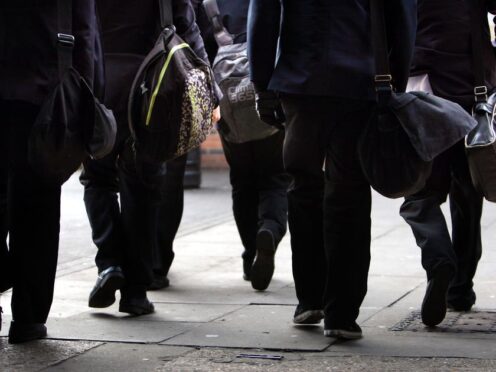Only one in 10 children believe that politicians always or often focus on the needs of young people when making decisions, a survey has suggested.
A poll, commissioned by a coalition of youth and education organisations, found that more than half (57%) of young people aged between eight and 17 feel that politicians rarely or never listen to their opinions.
It comes as charities have launched a mass-scale election for young people under 18, which will allow them to cast a vote for political candidates in their constituencies through their school or youth group.
An Opinium poll, commissioned by a coalition including Save the Children, NCS (National Citizen Service), ACT (Association for Citizenship Teaching), Young Citizens and The Politics Project, found that only 11% of young people feel politicians always or often focus on things that are important to them.
Almost nine in 10 (88%) young people believe it is important for them to have a say in the decisions that politicians make.
The survey, of 2,000 young people aged between eight and 17 in England and Wales in February, suggested that safety and mental health are the most important issues affecting young people.
More than half (56%) of those surveyed selected “feeling safe” as their top issue. This was followed by mental health (46%) and social media (38%).
More than a third (34%) of children listed the cost of essentials, like food, transport and heating, and more than a fifth (29%) cited climate change as one of the most important issues affecting young people.
The findings come as a coalition of organisations in the child rights, youth democracy and education sectors have launched the ‘Our Generation. Our Vote’ election for children and young people.
The project, which will be run through schools and youth groups, aims to teach young people about politics and democracy, as well as carve out a space for young voices ahead of the general election.
Darcy, a 16-year-old from Plymouth, said: “Children see and experience things in a different way to adults. Our perspectives are important. Currently, it feels like our politicians don’t represent us.
“We want more younger people in politics and politicians to take the time to listen to what we have to say.”
Maddy, a 16-year-old from Newcastle, said: “There is a stigma around children taking part and having a voice in politics. Often adults don’t listen to what we have to say. Young people’s opinions do matter, and we need to be heard.”
Meg Briody, head of child and youth participation at the Save the Children charity, said: “This research reveals how little young people feel listened to by our nation’s politicians – and that needs to change.
“Children have strong opinions about the society they live in, and it’s up to adults to make sure we listen and address their wants and needs.”
